1 The world of tea is vast, and the pot holds long days and months
The taste of tea, the way of tea. When sipping tea, we often encounter situations where the second or third time we drink the same tea, it never quite tastes like the first. We can't put our finger on it, but something seems to be missing.
In fact, sipping tea is about experiencing a culture. The reasons for such differences are not only related to factors like climate, brewing method, water temperature, and the person brewing the tea, but also psychological and environmental factors. It's akin to the harmony between high mountains and flowing water, good tea seeking its connoisseur.
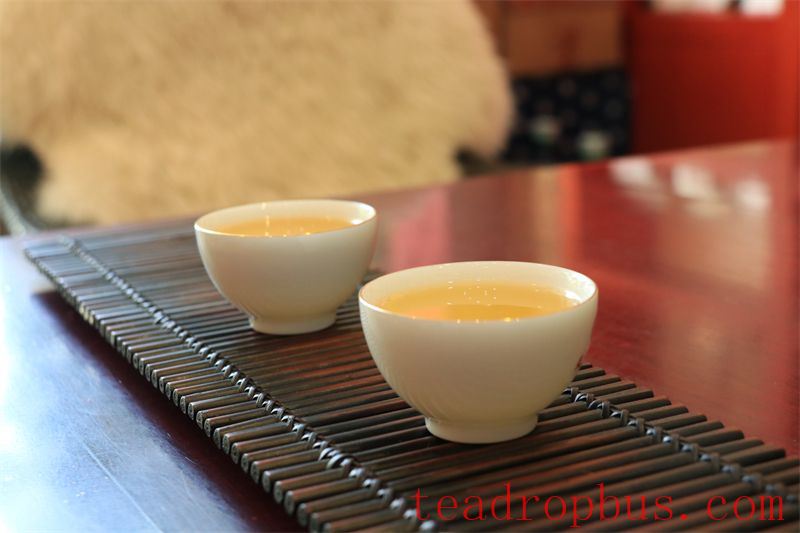
2 Based on changes in the nature of the tea
Tea water, simply put, is flavored water, but upon closer taste, one can detect the essence of sunlight, rain, and the aura of mountains and forests.
According to scientific research, tea leaves contain over 700 substances. The types, quantities, and ratios of these substances vary between different tea categories, profoundly influencing the taste of the infusion. These substances change over time.
In daily life, altitude and temperature can affect the flavor of tea. At higher altitudes, the boiling point of water is lower, which reduces the activity of enzymes in the tea, preventing the full release of its internal components. Lower temperatures slow down the awakening process of the tea, making its flavor less pronounced. This leads to the common belief that “summer tea tastes better than winter tea.”
3 Based on changes in brewing
It's said that brewing accounts for three parts out of ten in the overall experience of tea. Using the correct water temperature, technique, amount of tea, and teaware can significantly improve the taste of the tea.
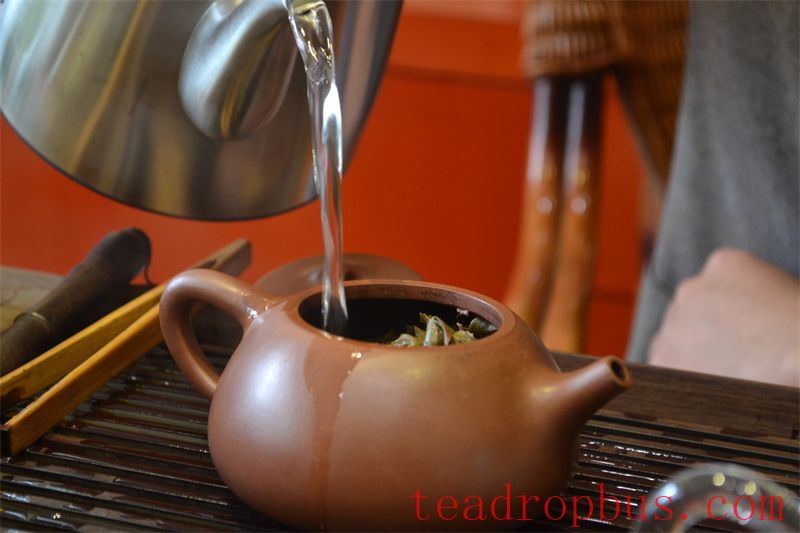
Pu'er Tea
Pu'er raw tea is best brewed in a gaiwan, while Pu'er ripe tea is ideally brewed in a purple clay pot. Use boiling water, with a general ratio of 10 grams of tea to 200 milliliters of water. For the first three infusions, no steeping is necessary; from the fourth infusion onwards, add about 10 seconds of steeping time per infusion, and by the eighth infusion, steep for one minute. Adjust according to personal taste preferences.
Pu'er tea is highly resilient and can typically be infused more than seven times.
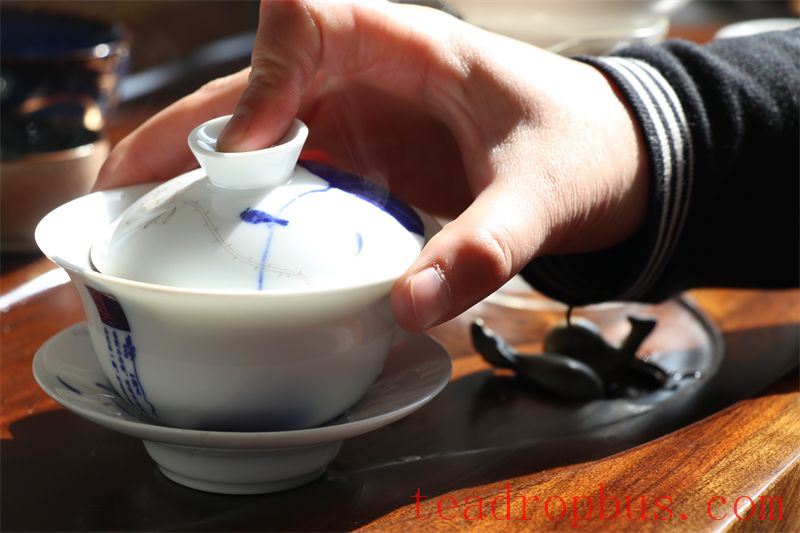
▲ Brewing Pu'er raw tea in a gaiwan
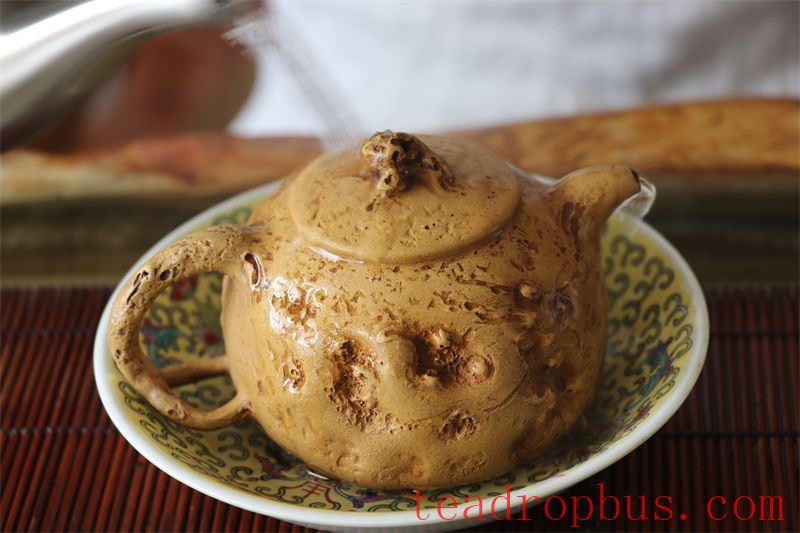
▲ Brewing Pu'er ripe tea in a purple clay pot
Black Tea
Black tea is best brewed using a black tea brewing vessel. The ideal water temperature is around 85°C, with a general ratio of 6 grams of tea to 150 milliliters of water. The first infusion should steep for approximately 15 seconds, with each subsequent infusion increasing by 5 seconds. Pour the tea into a tasting Cup until it is about seven-tenths full.
The resulting Yunnan black tea has a bright red infusion, rich and mellow flavor, fragrant aroma, and a lingering aftertaste.
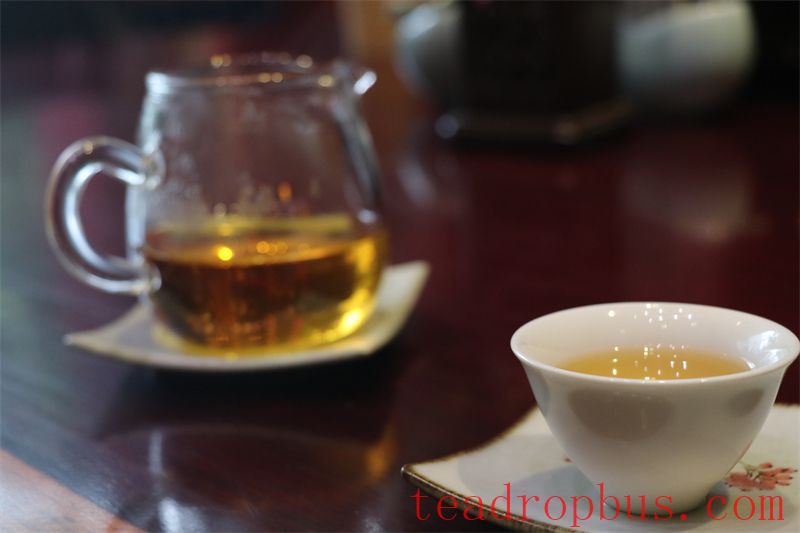
▲ Brewing black tea in a black tea brewing vessel
Green Tea
Green tea is best brewed in a glass teacup. Warming the cup with boiling water is important to raise its temperature. The ideal water temperature is around 85°C, with a general ratio of 3 grams of tea to 150 milliliters of water, which makes one cup.
When there is about one-third of the tea left in the cup, refill it with hot water. This helps maintain a relatively uniform concentration of the tea throughout the session.
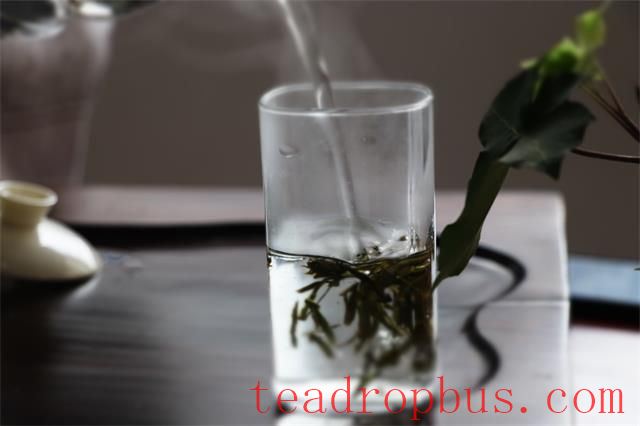
▲ Brewing green tea in a glass teacup
4 Based on changes in needs
Drinking Tea is about cultivating a state of mind. The environment and mood when drinking tea can also influence the taste of the tea brewed.